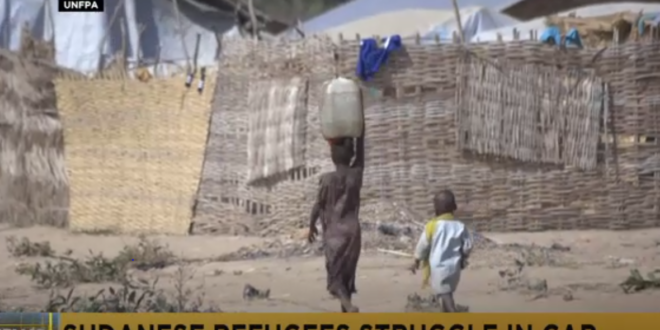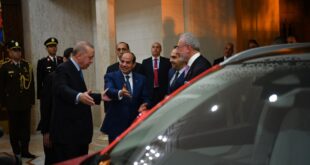Muhamad Yehia
According to the United Nations Population Fund (UNFPA), approximately 18,000 refugees and returnees fleeing the ongoing conflict in Sudan are in the Korsi Refugee Camp, located in a neighborhood of Birao, in the Vakaga region of eastern Central African Republic.
Located near Sudan’s border, the Vakaga region has become a critical refuge for those escaping violence, many of whom have endured harrowing journeys marked by trauma and abuse, including sexual violence.
UNFPA, in collaboration with its partners, provides critical gender-based violence (GBV) services in the camp and sexual and reproductive health (SRH) and GBV services at a nearby health facility in Birao.
The clinic delivers a range of health services including reproductive and maternal health care, including emergency obstetric care, and GBV case management, along with psychosocial support to help rape survivors begin to heal.
UNFPA supports the clinic by funding the salaries of a midwife and nurse, as well as providing medical supplies and equipment.
The camp’s proximity to the city of Birao allows residents to integrate with the host community more easily than other camps which are more isolated.
Refugees can participate in income-generating activities in the camp, such as embroidery and baking.
Once the products are ready, women sell the baked goods and handmade crafts in the town market bringing them back some degree of independence and self-reliance.
However, life in Korsi is far from easy.
Residents face severe food and water shortages.
Women are particularly vulnerable to gender-based violence, especially when collecting firewood for cooking.
Employment opportunities are minimal, and women struggle to earn enough to feed themselves and their families.
Malnutrition is widespread, especially among children, and current cash transfer programs fall far short. Immediate, expanded assistance is desperately needed to support Sudanese refugees in urgent need for safety.
 موقع وجه أفريقيا موقع وجه أفريقيا هو موقع مهتم بمتابعة التطورات في القارة الأفريقية
موقع وجه أفريقيا موقع وجه أفريقيا هو موقع مهتم بمتابعة التطورات في القارة الأفريقية



